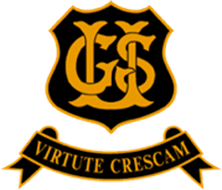Useful links
https://www.bbc.co.uk/bitesize/subjects/zhf3cdm
https://www.satpe.co.uk/2019/05/20/higher-course-overview/
https://www.sqa.org.uk/sqa/files_ccc/PE_Four_factors_table.pdf
Higher PE
SCQF: level 6 (24 SCQF credit points)
The course assessment has two components.
Component 1: question paper 50 marks 2 hours and 30 minutes
Component 2: performance 60 marks
The grade awarded is based on the total marks achieved across all course assessment components.
Who is this course for?
The course is suitable for students who have an interest in developing complex movement and performance skills. It is particularly appropriate for those who would like to enhance their performance and develop a deeper understanding of factors that impact on personal performance.
The learning experiences in the course are flexible and adaptable, with opportunities for personalisation and choice in relation to the performance assessment component. This makes the qualification accessible to the needs and aspirations of a diverse range of students.
The course provides a foundation for those considering further study or a career in a range of disciplines including physical education, sport, health and fitness.
Recommended entry
Students should have achieved the National 5 Physical Education course or equivalent qualifications and/or experience prior to starting this course.
Senior pupils with a strong background in Physical education and / or sport or dance may be considered for entry if they have not covered National 5 Physical Education.
Course Overview
There are 6 periods of Higher Physical Education per week. Time is usually split between 3 classroom based and 3 practical periods. The practical activities covered in course work (usually badminton, volleyball & basketball) provide the backdrop to learning about the Four Factors that impact on performance and the Cycle of Analysis on which the exam will be based.
The exam is out of 50 marks and you will have 2 hours and 30 minutes to complete this. Your exam score will also contribute 50% to your overall award. The exam is divided into the following three sections:
- Section 1 (32): the content knowledge assessed in this section of the exam can come from any part of the course elements (see below).
- Section 2 (6-10): the content knowledge assessed in this section of the exam will focus on the creation and implementation of personal development plans in two factors.
- Section 3 (8-12): the content knowledge assessed in this section of the exam can come from any part of the course elements (below) through a scenario which refers to two factors.
There are five course elements that sections 1 and 3 of the exam can focus upon:
- Factors impacting performance and performance development.
- Data collection and analysis.
- Key planning information.
- Developing performance.
- Recording, monitoring and evaluating progress.
Practical performance
The practical element of the course is assessed from two different activities. Where possible, students will be assessed in activities of their choice (which meet the Activities Acceptable for Assessment criteria set by SQA). Each of these activities will be assessed out of 30 marks. Your combined score in these activities contributes 50% to your overall award. Both activities will be assessed as a 1-off performance; how you do on the day determines your score. You will be scored in the following categories in each assessment:
| Area | Marks | Criteria |
| Skill Repertoire | 7 | Range of basic and complex skills and movements performed during performance |
| Control and fluency | 7 | The control with which basic and complex skills and movements are performed |
| Decision making and problem solving | 7 | Anticipating and reacting to ongoing performance demands as they occur |
| Composition , roles and tactics | 7 | Applying well-established composition, roles and tactics in response to performance demands |
| Rules, regulations and etiquette | 1 | Following the rules and regulations of the activity whilst demonstrating appropriate etiquette |
| Controlling emotions | 1 | Staying in control of emotions such as anger and fear throughout performance |


